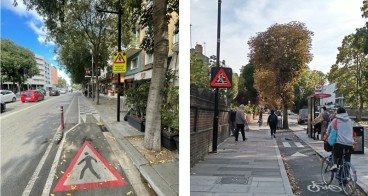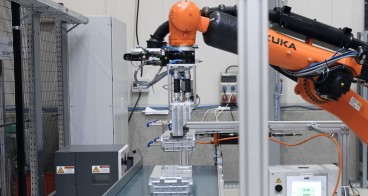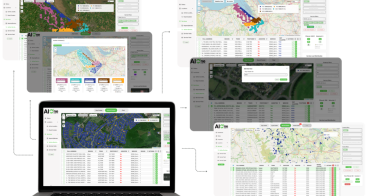Canada-Vancouver: Transportation, Zero Waste, Green Buildings, and Rainwater Management
Background
Background
Green Vancouver: Taking bold climate action
Project Greenlight’s open call process solicits innovative ideas that address complex challenges facing public and private enterprises (“members”). Whether your submission involves an emerging technology you are bringing to market, or a commercially available solution used in an adjacent industry, it must be unique, scalable, and aligned with the City of Vancouver’s strategic priorities.
The City of Vancouver is open to innovative, novel ideas that address key challenges around its sustainability goals and digital priorities (outlined below). Solutions should fall within the key focus areas of transportation, zero waste, green buildings, rainwater management and digital infrastructure. These might include:
Transportation-related solutions, including but not limited to solutions that:
- Build smarter and greener transportation infrastructure, including solutions that support active transportation and freight (e.g. smart/responsive pathway lighting for parks, e-bike charging stations, EV charging in facilities, curbside management).
- Enable zero-emissions transportation, such as EV charging retrofits in buildings, curbside management and charging solutions, energy management systems, integration with energy storage or on-site renewables.
Zero-waste solutions, including but not limited to solutions that:
- Streamline and manage solid waste and organic waste.
- Conserve natural resources.
- Reduce waste to landfill and incinerators.
- Embody circular economy principles, including repair, refurbish, share and reuse of materials before recycling them.
- Prevent waste, including wasted and inedible food at all points between farm and table.
- Process waste into compost, fuel or other value-added product.
- Streamline solid waste collection and disposal systems with a goal to reduce GHGs while creating social and economic benefit (i.e. green jobs).
Building-related solutions, including but not limited to solutions that:
- Support low-carbon construction requirements of the future, specifically around low embodied carbon construction materials for buildings and low emission equipment on construction sites.
- Electrify and/or reduce energy and emissions in City-owned and operated buildings and facilities (e.g. advanced or unique heat pumps, novel heat recovery technologies, new envelope technologies).
Rainwater solutions, including but not limited to solutions that:
- Manage and monitor rainwater runoff from impervious surfaces utilizing various green rainwater infrastructure (GRI) tools (e.g. street rain gardens and infiltration trenches, green walls, smart blue-green roofs) for a variety of building typologies/densities, to help achieve the city’s Rain City Strategy goals.
- Monitor and manage sewer inflow and infiltration, and reduce the impacts of sanitary sewer overflows.
Desired Outcome
The City of Vancouver would like to pilot innovative, functional, and scalable technologies that align with one or more of its strategic priorities. Successful submissions will demonstrate significant potential to reduce carbon pollution and/or adapt to our changing climate.
Proposals should directly relate to the Climate Emergency Action Plan and/or the Rain City Strategy. Where relevant, they should also align with, and help advance, the Healthy City Strategy and the Digital Strategy. Proponents will need to demonstrate measurable outcomes in achieving these strategies.
Opportunity
Engaging the City of Vancouver could lead to one of the following agreements, as per the City’s procurement policy regarding unsolicited proposals:
- A proponent demonstrating its solution.
- The City issuing a call for market responses to the goods and services being offered.
- The City pursuing the proposal.
- The City choosing to not pursue the proposal.
- Another mutually agreed option
Published on 12 June, 2023.






